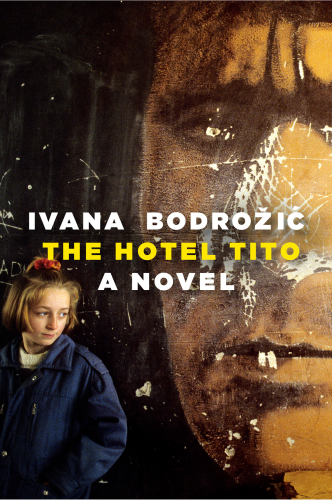
The Hotel Tito
A Novel
فرمت کتاب
ebook
تاریخ انتشار
2017
نویسنده
Ellen Elias-Bursacناشر
Seven Stories Pressشابک
9781609807962
- اطلاعات
- نقد و بررسی
- دیدگاه کاربران
نقد و بررسی

October 1, 2017
A young girl is caught in the turmoil of adolescence and war.Drawing on her own family's experiences during Yugoslavia's struggle for independence in the 1990s, poet and fiction writer Bodroi? (The Hole, 2016, etc.) creates a captivating tale that earned acclaim and literary awards when it was published in Europe. Translated by Elias-Bursa?, the story begins when the slyly observant narrator is 9 and suddenly is sent, with her older brother, from their home in Vukovar, on the Croatian-Serbian border, to the seashore. Although her parents do not explain why, she has "a sneaking feeling it has to do with politics because everybody talks about politics all the time." A few weeks later, the children's mother arrives, but their father remains in Vukovar to defend Croatia against the Serbs, a long siege that ends in the imprisonment--and, the family later learns, the murder--of 400 men, her father among them. The remaining family members become refugees, housed in one shabby room at the former Political School in Kumrovec, which they sardonically dub the Hotel Tito, after longtime Yugoslav president Josip Broz Tito, a native of that city. Living on a meager displaced family's allowance, they find a community consisting only of other refugees. Repeatedly, they petition the government for an apartment. "Believe me," the mother writes, "it is much harder for the families of the missing because there are things we can never accept, and the uncertainty is crushing us." Equally crushing is widespread disdain toward refugees. Against the backdrop of political news and rumors, the narrator grows up, setting aside Barbie dolls for disco clubs, dealing with jealousy, hurt feelings, her brother's volatile anger, her mother's depression, and her own mysterious emotions. "How cool it was to be all melancholy and sighs," she reflects. Desperate to leave the Hotel Tito, she is elated when her excellent grades make her eligible for a fine secondary school in the capital city of Zagreb. In the new setting, though beset by grief and fear, she is buoyed by hope.Tragic history conveyed with honesty and candor.
COPYRIGHT(2017) Kirkus Reviews, ALL RIGHTS RESERVED.

December 1, 2017
For the young protagonist of Bodrozic's debut novel, winner of France's Prix Ulysse and several Croatian and Balkan-area awards, ordinary worries about boys, clothes, and grades are set against a horrific backdrop. The book opens in summer 1991 as the Croatian war for independence flares up in her hometown of Vukovar, and she's sent to the coast with her older brother. But while her mother eventually joins them, her father stays behind to fight with the Croatian forces and ends up at Vukovar hospital, which astute readers will remember as the site of a terrible massacre. Squatting in an abandoned apartment, then a former political school (contemptuously called the Hotel Tito by its disillusioned residents), the siblings are now refugees, living with hundreds sharing their plight and regarded with contempt by those who don't. VERDICT Drawing on personal experience, Bodrozic is remarkably adept at blending a coming-of-age story about a girl who both knows and doesn't know what's happening with a starkly, almost matter-of-factly delivered picture of suffering we should not forget.
Copyright 2017 Library Journal, LLC Used with permission.




دیدگاه کاربران